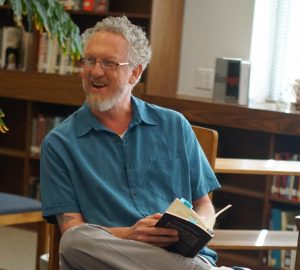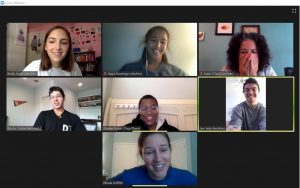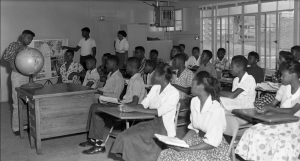New podcast covers equity, the AP classroom and more
‘Real Talk” panelists insist that celebrating our differences is awesome but grouping us by them is not
In the debut episode of MacJournalism’s new podcast, “Real Talk,” host Javier Vela interviews Emily Arndt, Bobby Currie, and Mr. Meyers about student equity at McCallum and what the real differences are between AP and regs classrooms.
November 16, 2020
On the first episode of Real Talk, host Javier Vela is joined by Mac Student Leaders Emily Arndt and Bobby Currie (all members of the student equity panel that spoke to teachers in August), as well as language arts teacher and Excalibur adviser Daniel Myers, to talk about equity issues that come up in the different experiences that students have in Advanced Placement versus regular classes.
One issue that emerged in the conversation is learning to acknowledge and appreciating differentness without that awareness making students of color feeling stigmatized or stereotyped in advanced classes.
“History or English or whatever you’re teaching isn’t about the color of your skin,” Currie said, “it’s just about learning what you’re learning that day.”
As one of the few brown kids in his AP classes, Currie said that there have been times were particular lessons have made him uncomfortably the focus of the lesson.
Another issue that came up in the conversation is the competitive and test-centered nature of AP classes.
“When I sit with my colleagues who teach AP, I notice that they tend to have a lot less freedom than I have in terms of what I choose to teach, what I bring into the classroom, the texts themselves,” Meyers said.
Speaking of freedom, Arndt said she felt she had to fight for the freedom to take a regular English class despite it being the right placement for her.
“I had to fight to get into a regular class that I really needed because I’m horrible at English,” Arndt said. “Until I got to [Meyers’] class, it wasn’t something I knew I could be good at.”
The reality, the panelists agree, is that no class should be labeled as a class that a certain group of students should take.
“Just treat students like students,” Currie said. “Just let them learn and let anyone take whatever class they want. That’s why we’re in school. We’re all just getting our education.”









